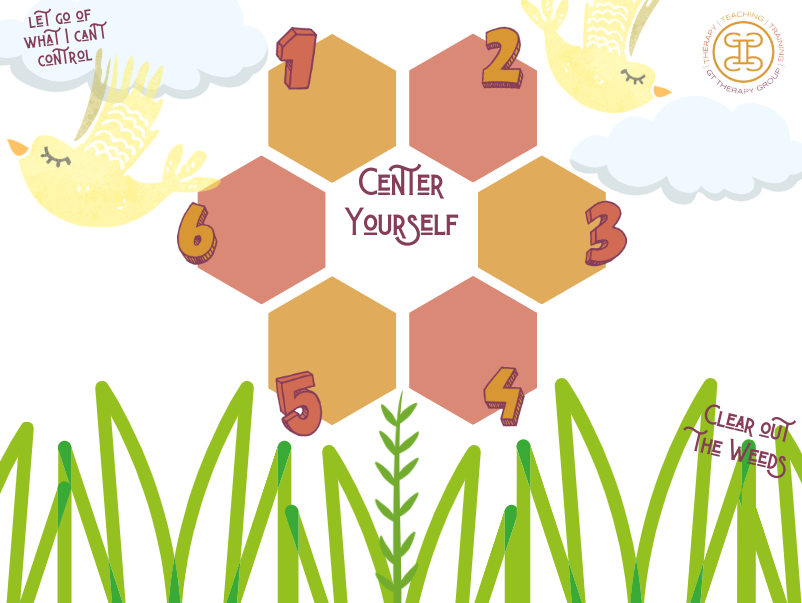5 Simple Ways to Practice Mindfulness Everyday
Photo by Eli DeFaria on Unsplash
We’ve all read the articles and heard our friends talk about mindfulness. Sometimes, it seems like a trend that will just pass. Hopefully, this is one trend that is here to stay. The benefits of a mindfulness practice are numerous - better sleep, reduced stress, increased positive emotions, improved attention, the list goes on. Who doesn’t want those benefits in their life?
So, what exactly is “mindfulness?” Brené Brown’s definition states mindfulness is “taking a balanced approach to negative emotions so that feelings are neither suppressed nor exaggerated. We cannot ignore our pain and feel compassion for it at the same time. Mindfulness requires that we not ‘over-identify’ with thoughts and feelings, so that we are caught up and swept away by negativity.” Zen master Jon Kabat-Zinn says, “mindfulness is awareness that arises through paying attention, on purpose, in the present moment, non-judgmentally.” Don’t those definitions sound lovely? Less attachment to negativity and less judgment… I’m in!
I often incorporate mindfulness practices with my clients to address anxiety and depression. However, I often hear clients reflect on how difficult it is to just sit and “be” in the present moment when they are feeling so low. Below are my recommendations for those of us who either struggle to sit still and empty our thoughts or those who have busy and/or hectic lives with constant distractions (anyone have a toddler at home??). Try incorporating one mindfulness practice each day. Even if it just takes 10 seconds, the consistency over time will have positive impacts, I promise!
5 Senses Pause: Take a moment and just name (silently in your mind) what each of your five senses is experiencing. This doesn’t take long and is a concrete way to check in with the moment. This is great for grounding when you are stressed or even solidifying a memory you wish to keep. I did this during my wedding ceremony (when my mind wanted to drift to the awkwardness of so many eyes on such an intimate moment), and to this day, I can remember how my husband’s hand felt in mine.
Intentionally Brush Your Teeth: The next time you brush your teeth, notice each sensation as you brush each tooth. Direct your thoughts only to the task at hand. If you mind drifts, be kind to yourself and simply bring your mind back to brushing. Notice the sensations you feel. Bonus benefit - a sparkling smile 😁
Listen with Attention: Next time you step outside, pause and see if you can notice all the sounds around you, whether near or far. Try not to label the sounds but simply take in the sound.
Box Breathing: This one is especially good when you feel your emotions rising to an unpleasant state. Take 5-10 box breaths. A box breath is simply inhaling for 4 seconds, holding that inhale for 4 seconds, exhaling slowly for 4 seconds and then holding the exhale for 4 seconds.
Mindful transitions: On a busy day when you’re going from one task to another, take a couple of seconds to end one task and begin the next. Simply put, acknowledge to yourself where you’ve come from and where you’re going. An example might be to take mental note in between tasks, “Okay, email to my boss is sent;” take a pause and a deep breath to finalize the task, so to speak, and then give yourself permission to move on to the next task, leaving the last one behind, “…and now I will make dinner.” If you notice yourself ruminating on a task you’ve let go of, simply come back to the present moment with a gentle reminder: “I’ve finished that already, there is no more I can do; now I am ______.”
The most important thing to remember when beginning (or continuing) a mindfulness practice is to be kind to yourself. Even meditation teachers with decades of experience will tell you that their mind wanders. It is not an indication of your effort, your motivation, or your ability to have a wandering mind. That is simply your mind trying to take care of you and protect you from perceived danger. Though often unhelpful, the intention is good. We simply have to build the muscle of mindful attention to teach the mind we don’t need protection from danger most of the time.











